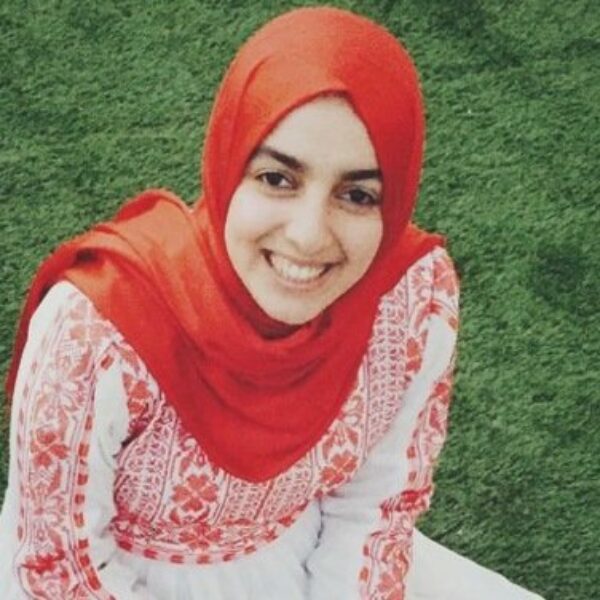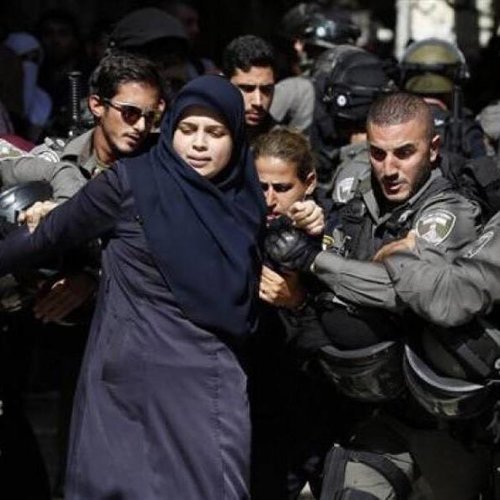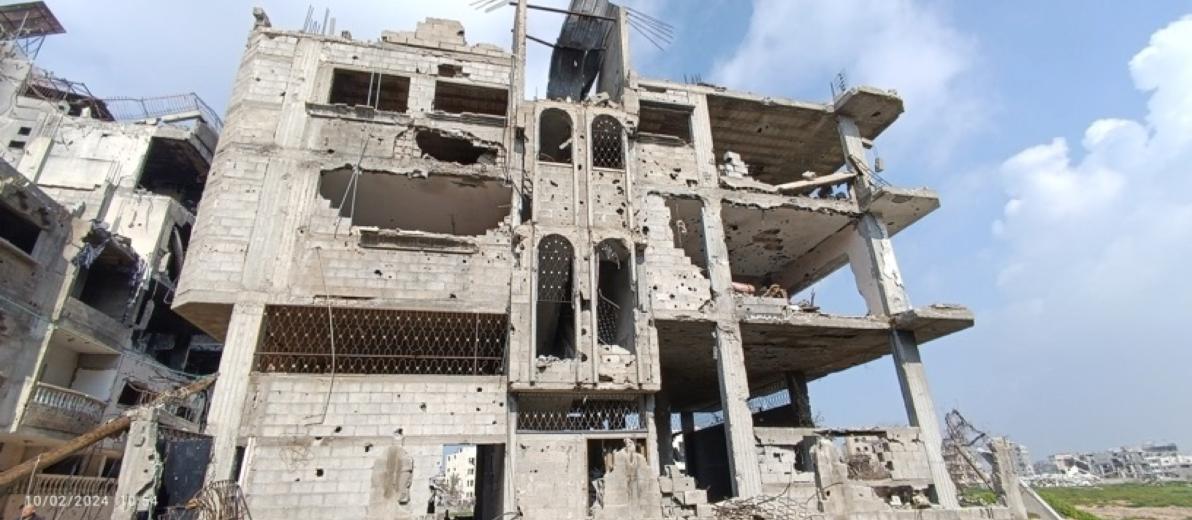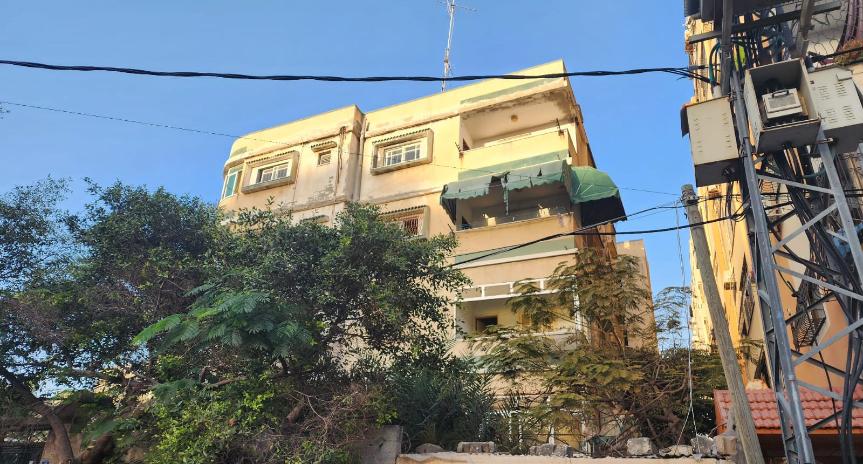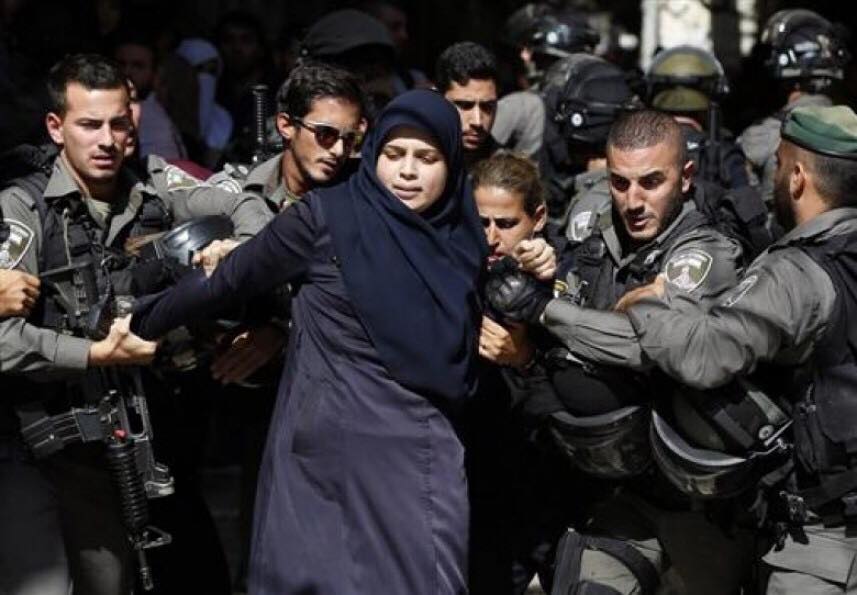
Note: More than 450 Palestinians have been arrested by the Israeli occupation forces following U.S. President Donald Trump’s declaration of recognition of Jerusalem as the capital of Israel. Among them are Ahed Tamimi, 16, and her mother. This is my account of what awaits young Palestinians when they are detained.
It was a dark day when my family heard the news of my arrest.
It was two years ago this week, at 8:30 on the morning of Saturday, December 19, 2015, and I was passing by Za'tara military checkpoint south of Nablus, heading from my home to Birzeit University where I was a fourth-year English student. When I arrived at the checkpoint, a group of Israeli soldiers stopped my taxi. They stood together, looking like a giant wall of harsh, yet orderly, statues. After verification of my identity, one of the soldiers ordered me to get out of the car, saying, “You’re under arrest. You have to go with us.”
I felt as if my limbs were frozen. I started trembling and anxious speculations raced through my head. I was handcuffed, blindfolded and held at the checkpoint until 4 p.m. I had no idea why I was there. I kept thinking about my mother who was just with me hours ago, and of my father, who had been imprisoned himself 15 days earlier—also for seemingly no reason. I silently wept, trying my best to hide my tears from the Israeli soldiers and stay a strong, brave Palestinian girl.
Later, I was transferred to Hasharon Prison in a special vehicle for prisoners called a “bosta.” It’s very hot in summer and very cold in winter, and inside, it looks like an empty grave. It is extremely dark and so narrow you can’t move. My feet were shackled along with my hands, so I couldn’t move or see anything except the dim light from a very small window at the top. However, it was the best place for me to cry, since they couldn’t see me. I cried hard, alone. I felt terrified and on the verge of a breakdown. The journey from the checkpoint to prison took more than four hours—and it seemed like the road to hell.
Then the vehicle stopped. Israeli soldiers violently opened the back door to the vehicle and ordered me to get out. I couldn’t move at first; my bones felt stuck to the iron chair on which I had been sitting for so long. My hands and legs were numb and cold due to the cuffs. They took me inside to complete the procedures for entering the prison.
“Are you Asma?” a woman asked.
I nodded yes.
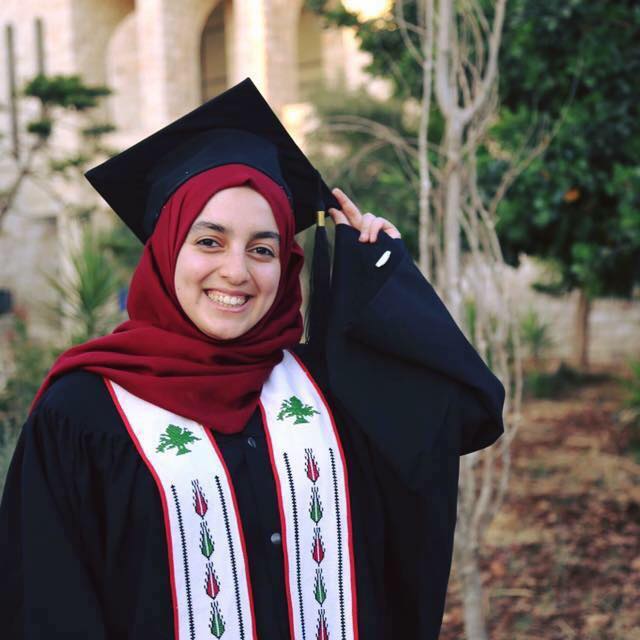
“We’ve been waiting for you since we heard about you in the news,” she said. “Are you ok?”
I couldn’t figure out why she was asking. It seemed very strange and I was too exhausted to process it. So I just nodded. It took me a while before I realized that I was really in prison and the women were other prisoners.
I started have a mental conversation with myself. “What were all of these old women doing in here? How long have they been here? For how long will I be here? How am I going to stand it?” Many questions raced around in my head. The other women asked me questions, but I couldn’t follow or understand them. I didn’t really want to. I just wanted to sleep.
My first night in the prison was the worst in my life. I thought about my father and what he would do when he learned that his daughter had been arrested. And what about my mother and my friends? I spent the whole night crying, asking God to help me and wondering, “Why am I here?”
Two days later, I was transferred to Ofer Prison for interrogation, which lasted for about an hour. I was accused of participating in pro-terrorist activities run by my university’s student council, for which I led the cultural committee. Although there was no serious investigation into the accusations directed at me, the judge refused to reveal any of the information in my secret file. After the hearing was over, I was led back to the prison to await my verdict. The military court issued an order requiring “administrative detention” for three months, starting December 22 and ending on March 18, 2016.
Although I spent the full three months in prison, I find it hard to recall that time now. I mostly spent my time reading and learning Hebrew; I read about eight books during the long, tedious days. Other than that, I don’t remembermuch of what I did all that time, or even what my jailers’ faces looked like. I guess it's a chapter of my life my mind rejects.
I was supposed to finish my bachelor's degree and wear my graduation gown in July 2016. I was dying to finish school. However, the Israeli authorities forbade me from returning to school for another five months. I couldn't join my classmates to attend the graduation ceremony. I had to retake several courses and start the year over; it postponed my graduation an entire year.
My experience is over, but I have been permanently changed by this experience. I learned to be more patient, and I am better able now to live under pressure. I also believe we need more education and awareness here about the role of women in resistance. In our society, women must fight for their rights to participate in politics and struggle.

